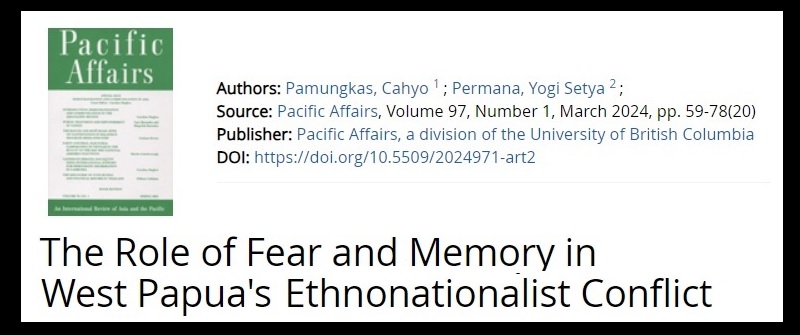
14 Mar Article | The role of fear and memory in West Papua’s ethnonationalist conflict
New article by Yogi Permana et al. in Pacific Affairs, ‘The role of fear and memory in West Papua’s ethnonationalist conflict’.
In the West Papua conflict, fear fuels both Papuan ethnonationalist and Indonesian nationalist sentiment. We argue that this reciprocal fear and memoria passionis plays a significant role in fuelling political violence. On the one hand, it provokes Papuan activists to respond violently to Indonesian military operations. Fear of losing future generations of indigenous Papuans has strengthened their identity as Papuans and encouraged them to join armed movements against Indonesia. On the other hand, fear of West Papuan independence leads the Indonesian military and police to conduct operations against members of the Free Papua Movement and affiliated groups and other activists not in the independence movement.
This results in a “reciprocal fear-fuelled nationalism,” whereby Indonesian security forces and Papuan separatist activists are drawn into increasing conflict. In this context, fear becomes institutionalized and socially constructed. By understanding the unending violent conflict in Tanah Papua as related to the transfer of emotions across generations, it becomes clear a military operations approach will not be effective in the long term. Non-violent approaches, especially dialogue with separatist groups, will be more effective in breaking the chain of violent memories, resulting in more positive outcomes for conflict resolution in Papua. Learning from negotiations between the government of Indonesia and the Free Aceh Movement in 2005, we support the proposition that dialogue is the best entry point by which to end this prolonged separatist armed conflict.




No Comments